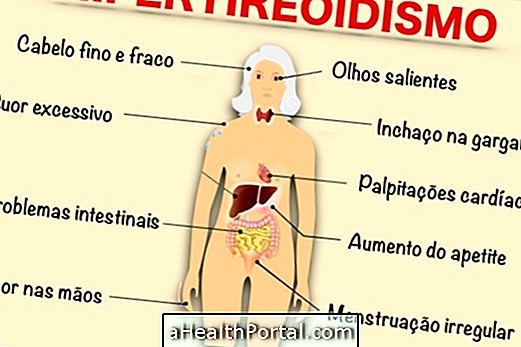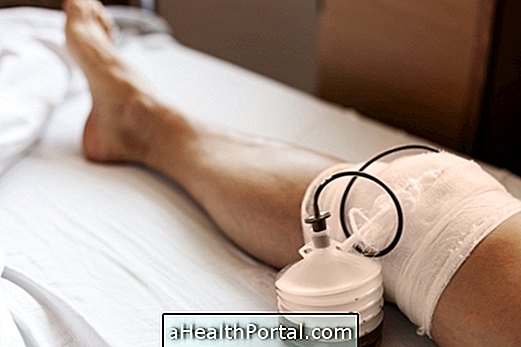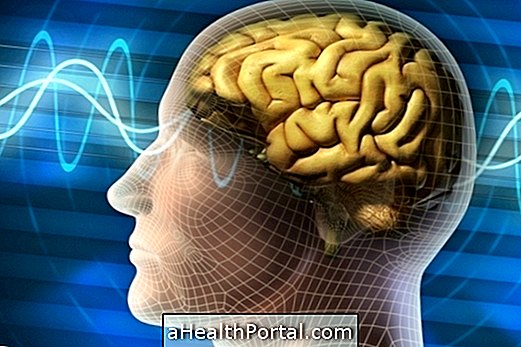The main cause of tremor in the body is obviously the cold, situation that causes the muscles to contract to warm the body. However, there are other causes of tremors, both triggered by moments of anxiety, consumption of stimulants, or caused by neurological and muscular diseases, the main ones being Parkinson's disease, essential tremor and exacerbated physiological tremor.
The main sites of the body affected by the tremor are the arms or legs, head, chin and face, and may be tremors of various types, such as at rest or in movement, unilateral or bilateral, and may or may not be related to others symptoms such as imbalance, slowness and stiffness of muscles.

Thus, the main causes of tremor include:
1. Anxiety crisis
When you are anxious, stressed or scared, the nervous system is activated so that the body is more alert to react to any dangerous situation. Thus, a large amount of stimulating hormones, such as adrenaline, are released into the bloodstream, causing effects such as tremor in the hands or throughout the body, as well as sweating, dilated pupils, increased heart rate and increased blood pressure.
How to treat : To lessen the tremors and other reactions derived from anxiety, it is necessary to calm down, which can be done with deep breaths, a meditation or moving away from the stressful situation. If this is not possible, or the reaction is very intense, a medical evaluation is required, which may indicate anxiolytic medicines, such as Clonazepam, or herbal medicines, based on valerian or chamomile, for example depending on each case.
2. Decreased blood sugar
People who spend a lot of time without eating, especially diabetics, may develop an episode of hypoglycemia, where there is a marked drop in blood glucose. In response to this situation, the brain releases stimulating hormones, so that the body's cells can react even in the absence of fuel, which causes the tremor.
How to treat : You need to eat or drink some easily digestible sugary food or drink, such as orange juice or candy, for example. However, hypoglycaemia should be avoided, so you should not go for more than 3 hours without eating, and avoid carbohydrate foods with very fast digestion in meals, preferring foods with a low glycemic index.
See how the diet should be to avoid reactive hypoglycemia.
3. Excessive consumption of energy drinks
The consumption of stimulant substances, such as caffeine in teas and coffees, or energy drinks containing taurine, glucoronolactone or theobromine, for example, also activates the nervous system and stimulates the body, since it mimics the action of adrenaline and causes several reactions, like the tremor.
How to treat : you should reduce the consumption of these substances in the day to day, because, in addition to the tremor, can induce the increase of blood pressure and accelerate the heart beats, and should opt for natural alternatives to increase energy and decrease sleep.
See our food tips for more energy.

4. Use of antidepressants and other remedies
Some medications can cause tremor in a number of different ways, most commonly causing nervous system stimulation, as with some antidepressants, anticonvulsants, or bronchodilators for asthma, for example.
Other types of medication, such as haloperidol and risperidone, for example, can cause tremor by intoxicating regions of the brain responsible for movement, and induce a condition similar to Parkinson's, and is therefore called parkinsonism, with tremor, muscle stiffness and imbalance.
How to treat : When a medicine causes tremor, it is necessary to inform the doctor, to evaluate the possibility of changing the medicine used.
Diseases that can cause tremor
When tremors are not triggered by any of the above, or when they become persistent and intense, they may be a sign of neurological disease, and a medical appointment is important for proper evaluation. In these cases, the most common diseases are:
1. Exacerbated physiological tremor
Physiological tremor is present in all people, but it is usually imperceptible, however, some people may have this situation exaggerated, which causes tremors during movements, such as writing, sewing or eating.
There may be worsening of symptoms in situations of anxiety, fatigue, use of some substances, such as coffee or alcoholic beverages, for example.
How to treat : If this is not too uncomfortable, this tremor does not need to be treated and does not cause health risks, but in more severe cases, the symptoms can be controlled with the use of a beta-blocker medicine such as Propranolol. Treatment will have more effect if the causes that trigger the exacerbated tremor, such as use of medicines or anxiety, are observed and treated.
2. Essential tremor
This type of tremor is also very common, especially in the arms and hands, but it can also occur on the face, voice, tongue and legs, and occurs during movement or standing in a position, such as holding an object, for example.
It is known that the essential tremor is related to genetics, but its cause has not yet been fully clarified, and can occur in people of any age, and is more common in the elderly. Symptoms can also worsen in situations of stress, anxiety, and use of some stimulant substances, such as alcohol.
How to treat : milder cases do not need treatment, but if they interfere with everyday activities such as eating and writing, they should be treated with medicines such as Propranolol and Primidone prescribed by the neurologist. In very serious cases or those that do not improve with medicines, there are procedures such as the application of botulinum toxin or the installation of brain stimulators, which can help control the symptoms.
Learn more about what is and how to treat essential tremor.
3. Parkinson's disease
Parkinson's disease is a degenerative condition of the brain, characterized by causing tremor at rest, which improves with movement, but is accompanied by stiffness of muscles, slowing of movements and imbalance. Its cause, although not fully known, is due to a wear and tear of regions of the brain responsible for the production of dopamine, an important brain neurotransmitter.
How to treat : The main drug used is Levodopa, which helps replenish the amount of cerebral dopamine, but other remedies that are also used to improve symptoms are Biperidene, Amantadine, Seleginine, Bromocriptine and Pramipexole. It is also important to perform physical therapy and occupational therapy to relieve symptoms and improve the quality of life of these people.
Learn more about identifying and treating Parkinson's disease.

Other diseases
Other diseases that stimulate the nervous system, and may also trigger moments of tremor, are hyperthyroidism, restless legs syndrome or poisoning by heavy metals, such as lead and aluminum, for example.
There are also other rarer brain diseases that cause tremor or other movement disorders, in some cases being confused with Parkinson's, and some examples are Lewy body dementia, stroke sequelae, Wilson's disease, multiple organs, for example.
How to diagnose the cause of the tremor
The tremor must worry, it is necessary to go to the doctor, when it is intense to the point of disrupting the activities of the day to day and when it presents progressive worsening, becoming persistent.
In this case, it is important to schedule an appointment with the general practitioner, neurologist, or geriatrician for symptom assessment, physical examination and, if necessary, blood or CT scans of the brain to determine the cause of the tremor.


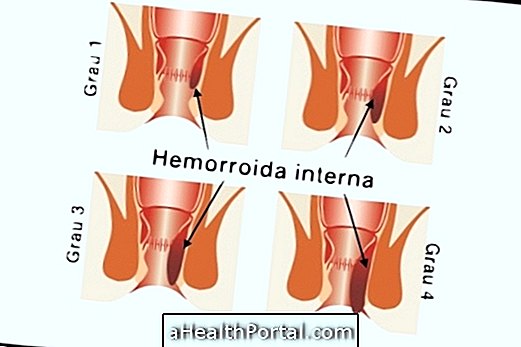

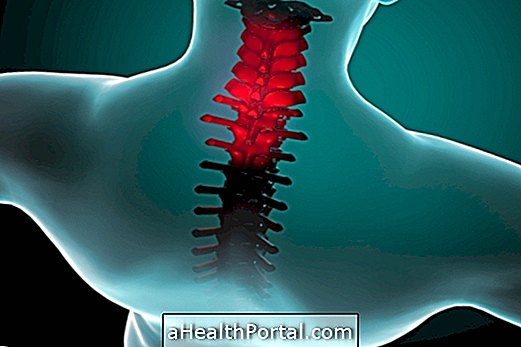
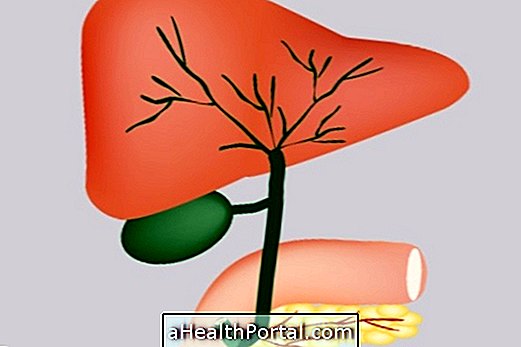





-o-que--sintomas-e-tratamento.jpg)
